
Purchase Tickets
Sylvia’s World, Part 3 – Isadore
May 2, 2022
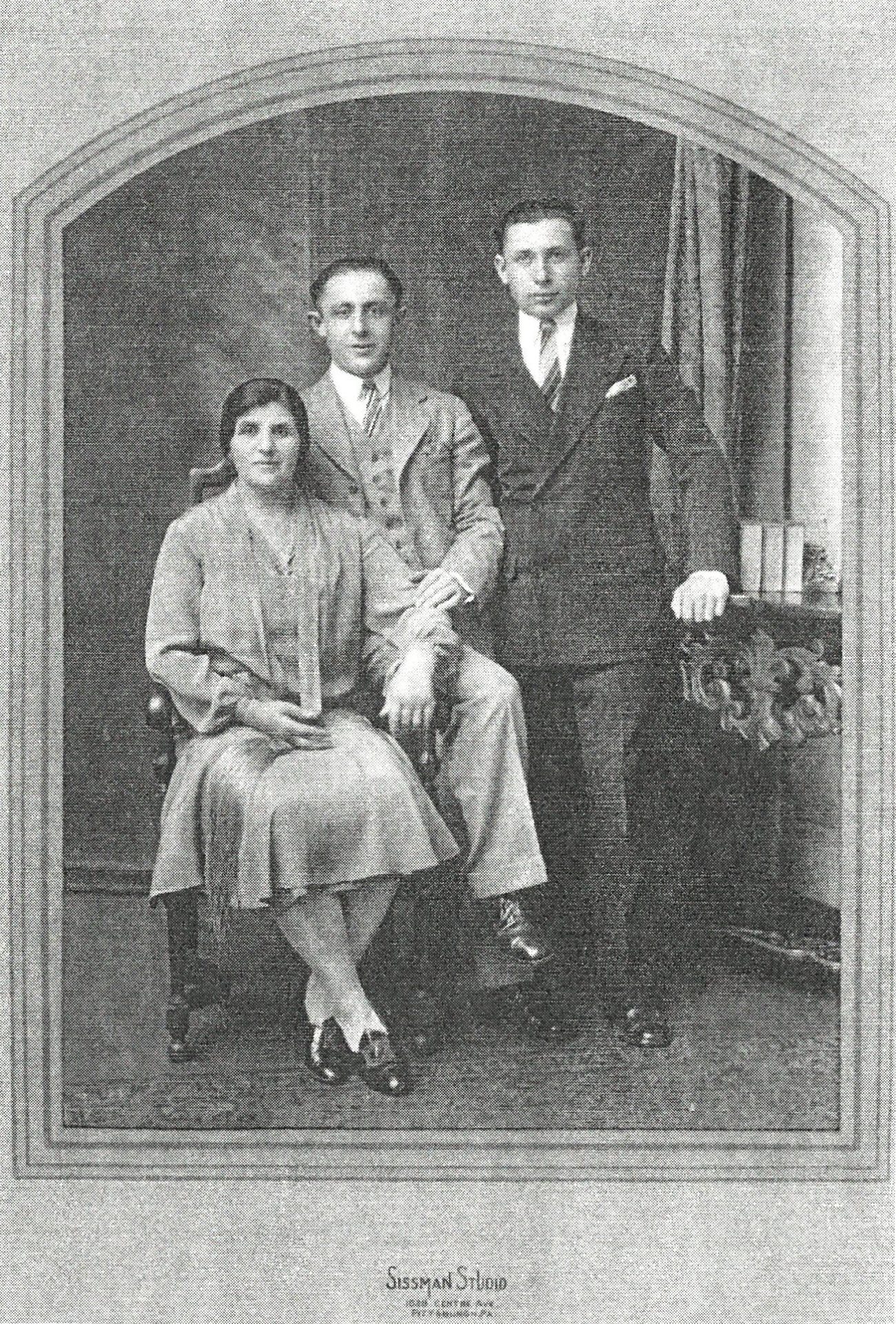
As we’ve explored Sylvia Dichner’s life (Part I and Part II) in Indianapolis, we have encountered the man who would become her husband, Isadore “Izzy” Weiss. While Sylvia’s story connects us to life in Indianapolis as a young working person in the Great Depression, Isadore’s life links the past with the unfortunate current events we are trying to understand today.
April 28, 2022, Indianapolis, Indiana: As I sit down to compose this blog today, it has been two months and five days of the unprovoked Russian invasion and attack on Ukraine. The news reports that 5.3 million Ukrainians have fled their country, and 6.5 million Ukrainians are displaced from their homes inside Ukraine. The UN, NGOs, and governments around the world are working to provide aid to Ukrainian citizens.
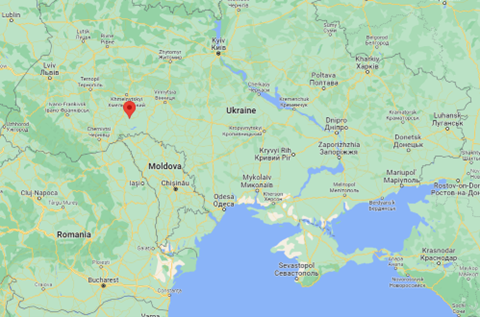
The red dot on the map shows the location of Myn’kivtsi (Minkovitz), the hometown of Isadore Weiss.
1921, Myn’kivtsi (Minkovitz), Ukraine: Isadore Weiss (Itsik Vaisman), age 12, is spending another day hidden with his family in a potato cellar, somewhere near the Romanian border with Ukraine, waiting to continue their journey walking across open fields past the border without being apprehended by soldiers on either side. This is not the first time the family has tried to flee for their lives in Bolshevik (Russian) controlled Ukraine. Upon their first attempt, the entire family- Izzy’s mother, himself, and three of his siblings, were apprehended and jailed by the Bolshevik Army. Prior to this escape attempt, the family had experienced a German occupying force during World War I, a pogrom in their village executed by the Bolsheviks, and near starvation. Money sent to the family by Izzy’s father and brother in the United States never made it to their village due to war and civil unrest.
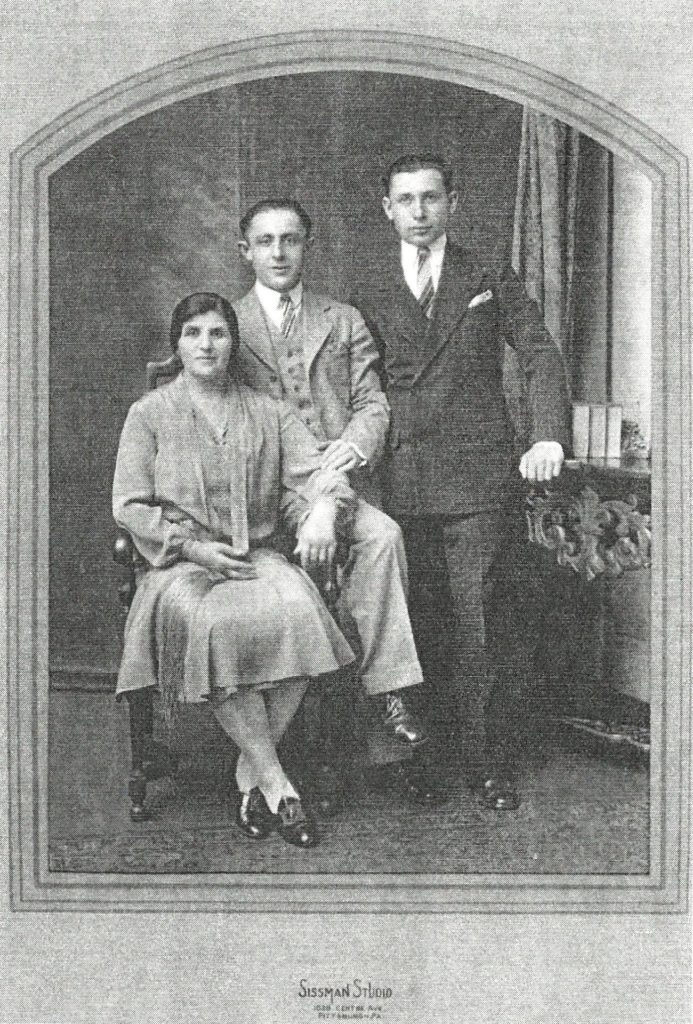
Mirrel (Mary), Samuel, and Isadore Weiss in Pittsburgh, Pennsylvania. Image from Looking Back: The Russian Revolution Through the Eyes of a Jewish Child.
In 1922, with the help of the Hebrew Immigrant Aid Society (HIAS), the refugee Weiss family was reunited with their father Meyer Weiss and brother Morris in Pittsburgh, Pennsylvania, where Izzy learned English, excelled in school, and earned a scholarship to the University of Pittsburgh. To help support his family, Izzy worked in the dry cleaning and tailoring business the Weiss family ran out of their home at 503 Collins Avenue and took on extra bookkeeping jobs. Most importantly, on a fateful day in the summer of 1932, college senior Izzy would meet Sylvia Dichner of Indianapolis and become her faithful correspondent whenever they were apart, for the rest of their lives together.
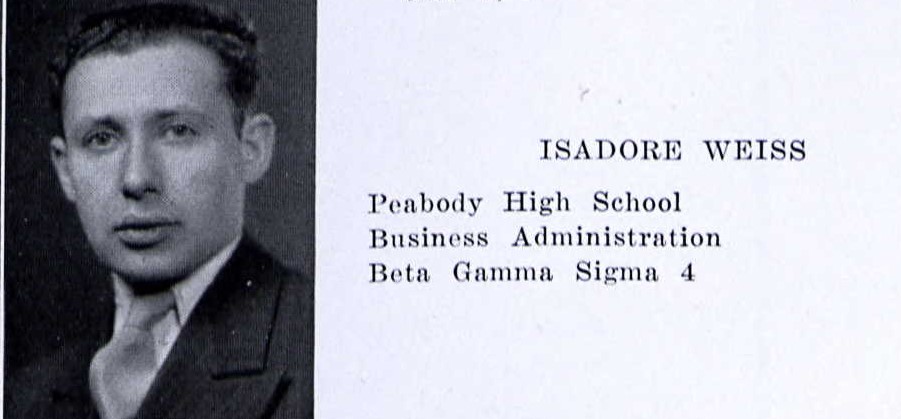
Izzy’s yearbook photo from his senior year at University of Pittsburgh. Ancestry.com
Throughout their early correspondence, when the couple was getting to know each other, Izzy occasionally mentioned his childhood in Ukraine, many times extolling upon the natural beauty of the area, and only alluding to the trauma and privation he experienced. However, in 1945, Izzy sent his dear wife a letter shortly after V-E Day. At this time, he was far away from her and their young family, work taking him to Vancouver, Canada. Alone in another foreign country and with downtime to spare during the workday, Izzy found himself in a park, considering the beautiful foliage, the water, and the peace he’d been afforded that day.
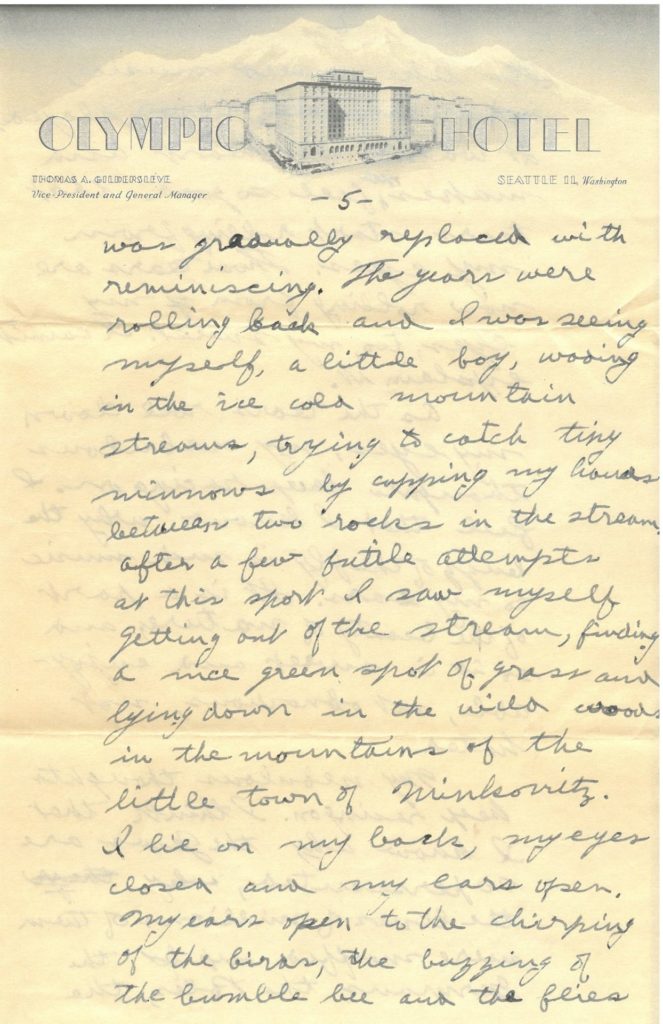
Page 5 of a letter from Izzy to Sylvia, 20 May 1945. “The years were rolling back and I was seeing myself, a little boy, wading in the ice cold mountain streams, trying to catch tiny minnows by cupping them in my hands between two rocks in the stream. After a few futile attempts at this sport I saw myself getting out of the stream, finding a nice green spot of grass and laying down in the wild woods of the mountains of the little town of Minkovitz. I lie on my back, my eyes closed and my ears open. My ears open to the chirping of the birds the buzzing of the bumble bee and the flies.” Isadore and Sylvia Dichner Weiss Collection, Indiana Historical Society.
This is a day when he considers the trauma of subsequent years as a refugee, an immigrant, and now as an American Jew who witnessed from far away the atrocities of Hitler’s program of genocide in Europe.
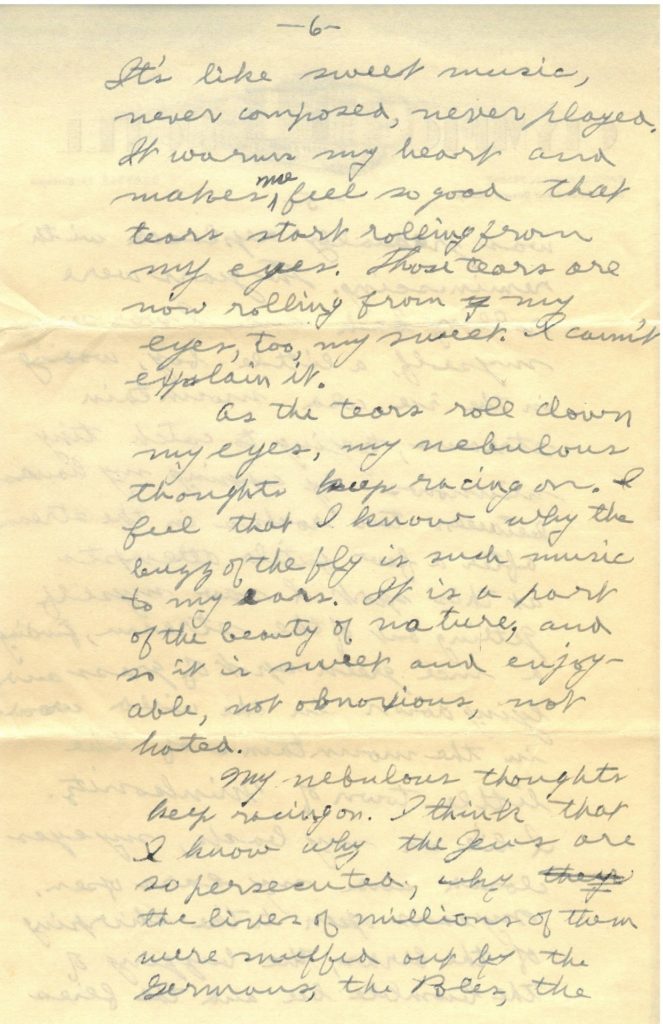
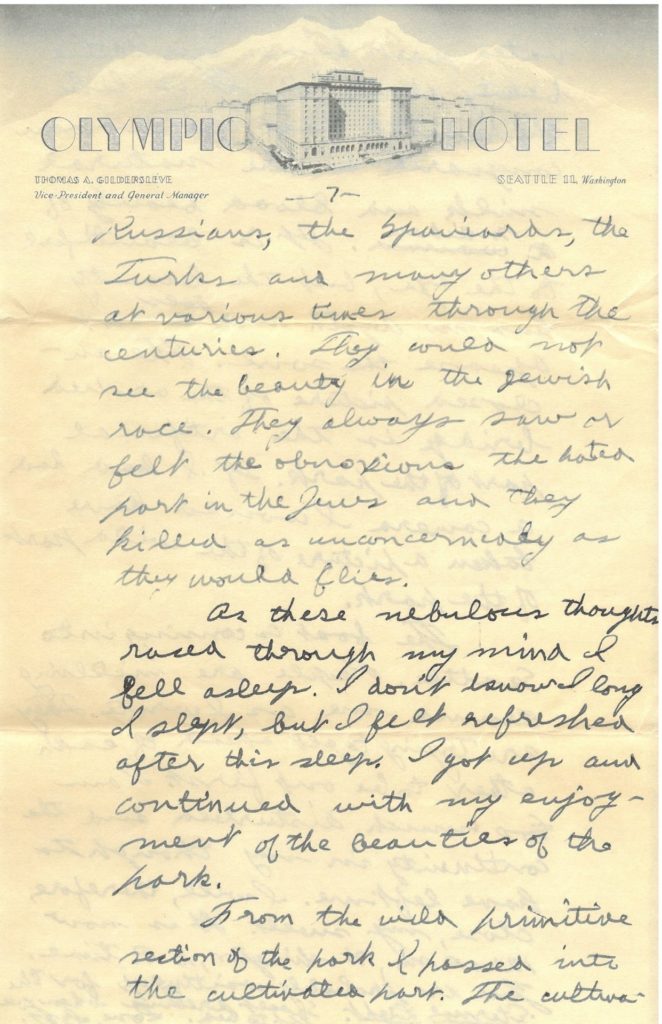
Pages 6 and 7 of a letter from Izzy to Sylvia, 20 May 1945. “[6] As the tears roll down my eyes, my nebulous thoughts keep racing on. I feel that I know why the buzz of the fly is such music to my ears. It is a part of the beauty of nature, and so it is sweet and enjoyable, not obnoxious, not hated. My nebulous thoughts keep moving on. I think that I know why the Jews are so persecuted, why the lives of millions of them were snuffed out by the Germans, the Poles, the [7] Russians, the Spaniards, the Turks and many others at various times throughout the centuries. They would not see the beauty in the Jewish race. They always saw or felt the obnoxious the hated part part in the Jews and they killed as unceremoniously as they would flies.” Isadore and Sylvia Dichner Weiss Collection, Indiana Historical Society.
In 2022, the world is watching a different Ukrainian Jew, President Volodymyr Zelenskyy, whose grandfather survived the Holocaust, lead his nation in a war he never asked for. The Hebrew Immigrant Aid Society raises funds for Ukrainian victims and refugees, and the story of one Ukrainian-born, later proud Jewish-American, Isadore Weiss, feels more present to us than ever.
To learn more about Sylvia and Izzy, make an appointment to view the Isadore and Sylvia Dichner Weiss Collection at the Indiana Historical Society Library, reference@indianahistory.org. The Weiss family also published a book, Looking Back: The Russian Revolution Through the Eyes of a Jewish Child that contains Izzy’s original 1928 manuscript. “Looking Back” details his childhood in Ukraine, as well as genealogical information and contextual essays on Jewish life in Ukraine, the Russian Revolution, and the persecution of Jews during this time.









